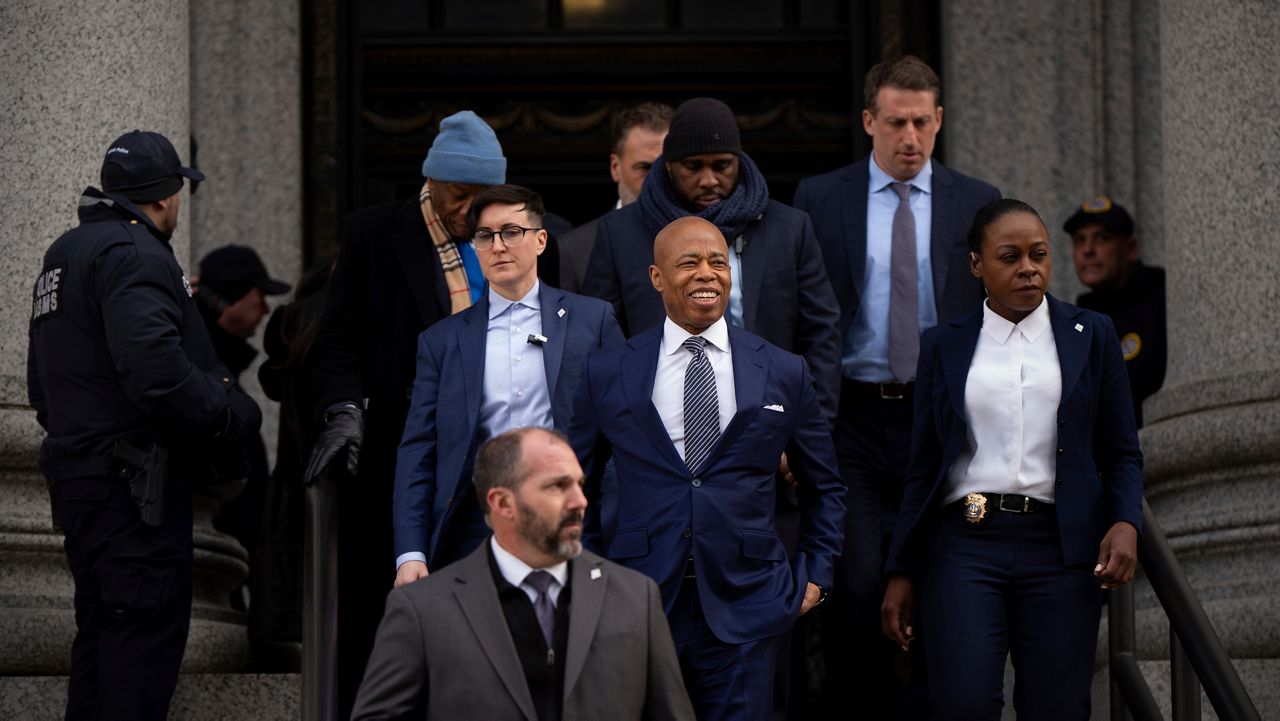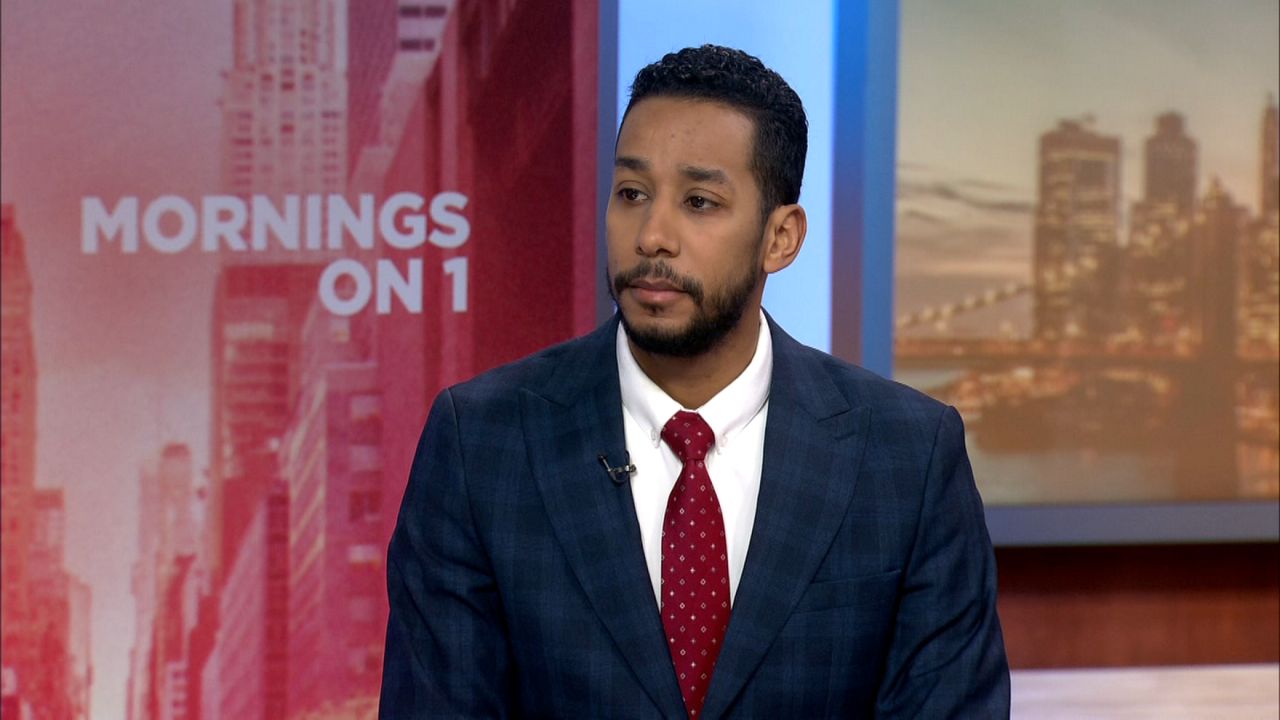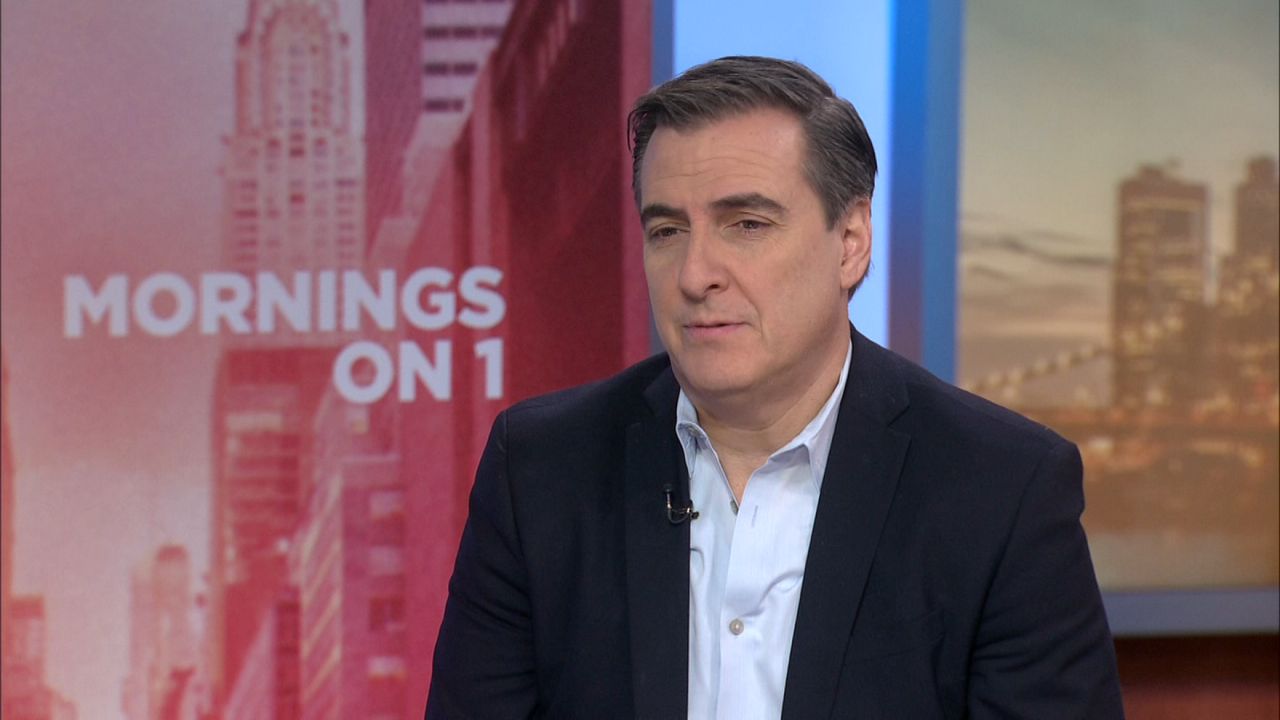City Hall announced expected budget cuts on Thursday. The 5% savings program, known as a PEG, was instituted back in September in the wake of growing costs to house and feed asylum seekers.
The NYPD will see one of the most noticeable cuts, with the next five cadet classes being canceled, reducing the force to about 29,000 officers.
The cuts will impact virtually every city agency, including cutting overtime hours in the Fire Department, eliminating Sunday services at libraries, fewer litter baskets for sanitation and the potential elimination of universal pre-K seats.
Mayor Eric Adams said the cuts are necessary to close a gap that has swelled from $5 billion to $7 billion.
“We have to find another $7 billion out of that $37 billion in January. This is the most painful exercise I’ve ever done in my professional life,” said Adams at an unrelated event on Thursday.
The mayor, like many other elected officials, has placed the blame squarely on the federal government’s failure to handle the influx of migrants into the U.S.
“The national government is our insurance policy to take care of national issues and since they're not taking care of the roof caving in on us, we have to pick up the cost of that. That’s wrong,” Adams said.
The mayor said New Yorkers are going to have to step up in the midst of reduced services.
“We’re going to need some real community participation. Block cleanups, everybody lending a hand to say let’s keep our community clean and folks picking up after themselves,” Adams said.
But some critics say the migrant costs are due to the city’s overspending amid their ongoing influx.
“City Hall has relied on a number of very, very expensive emergency contracts with for-profit companies who are billing the city billions of dollars,” said City Councilman Justin Brannan.
The city has spent nearly $2 billion on the crisis so far.
Of note, the recent cuts are projected to save the city over $3 billion dollars over the next two years, but still do little to close the fiscal cliff.
“You’re not going to finance anything through PEGs, you’re not going to finance a migrant crisis through cutting essential city services, it’s just not how it works,” Brannan said.
Brannan, the City Council finance chair, said the cuts reverse many of the investments the city made back in its initial June budget.
“These are programs the council prioritized just a few months ago, when we shook hands on the budget in June,” Brannan said. “The fact that they are back on the chopping block is very, very concerning for us.”
For many agencies, this is the third round of cuts the city has ordered since January 2022.
“A lot of these agencies are skeletal at this point, there’s nothing left to cut. We hear from these commissioners and they are begging for mercy,” Brannan said.
The cuts take effect immediately and the city’s budget chair said that steeper cuts could be on the horizon.









